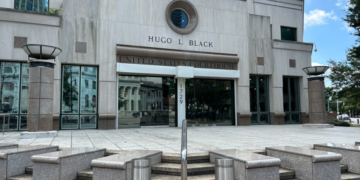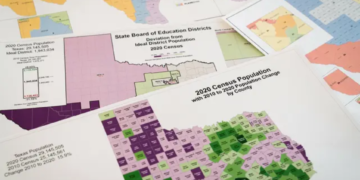A voter completes registration before participating in the presidential election in Detroit on November 3, 2020. Image credit: Emily Elconin / Bloomberg via Getty Images file. Img source: nbcnews.com
May 8, 2024 Story by: Editor
A rift within the Black voter demographic emerges as the Biden-Trump rematch looms, with younger voters exhibiting greater disillusionment towards Biden and a surprising openness towards Trump and third-party options, contrasting sharply with older Black voters’ steadfast support for the President.
Recent polling indicates a notable shift in Black voter sentiment compared to the previous presidential campaign. While Biden still commands significant support within the community, it has slightly waned since 2020. Concurrently, Trump’s appeal among Black voters appears to be on the rise, with levels potentially surpassing those seen in previous Republican nominees’ campaigns.
However, skepticism looms over these findings, considering past instances of misleading polls suggesting significant Black GOP support that didn’t materialize on Election Day. Historically, Republican presidential candidates have struggled to secure more than 12% Black support in exit polls.
Despite the fluctuations, it’s crucial to acknowledge the limitations of polling data, particularly concerning the relatively small sample sizes of Black voters, which often lead to significant margins of error. Nonetheless, aggregate results from multiple polls indicate a discernible shift compared to four years ago.
A recent Washington Post/Ipsos poll, focusing exclusively on Black voters, revealed intriguing insights. While the survey didn’t directly measure the Biden-Trump race, it indicated varying levels of support for potential candidates, with Biden leading but Trump and third-party options garnering notable shares of support.
Across various polls, a consistent trend emerges: younger Black voters express more skepticism towards Biden and are more willing to consider alternatives, while older Black voters remain firmly supportive of the President and resistant to other options. However, there’s a caveat: younger, Biden-wary Black voters exhibit lower enthusiasm for the upcoming election compared to their older counterparts, which could impact turnout in November.
Ultimately, whether Trump can capitalize on this generational divide and secure historically high Black support remains uncertain. The outcome hinges on various factors, including voter turnout and the ability of each candidate to mobilize their respective bases. As the election approaches, the true significance of these polling trends will become clearer.

















